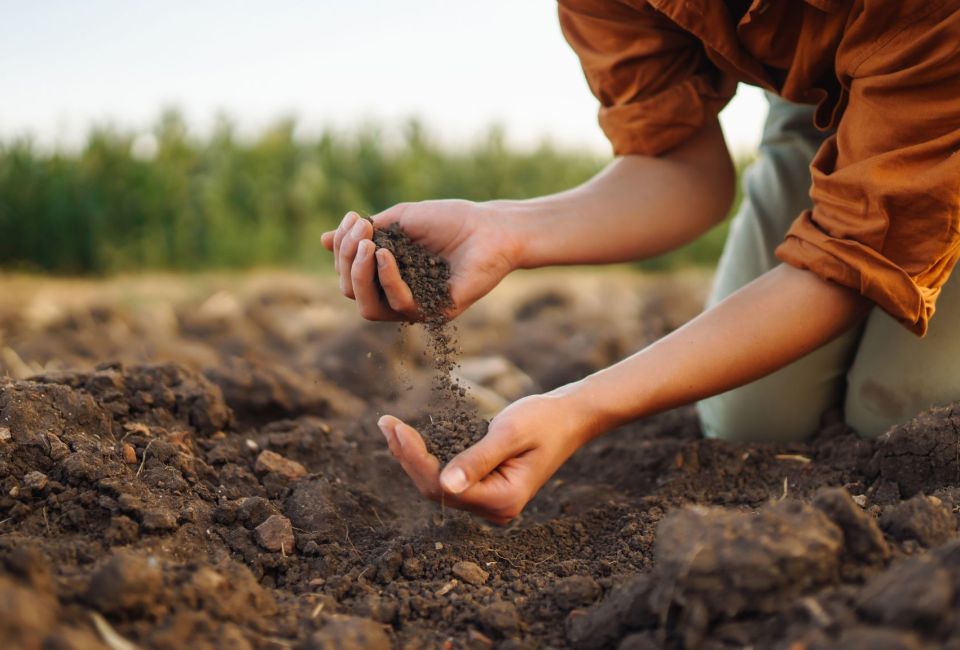
Biofertilisers obtained from livestock manure can compete with conventional fertilisers and have less environmental impact
The biofertiliser products that have been obtained in the biorefineries of the FERTIMANURE European project, coordinated by the BETA Technology Center at the University of Vic - Central University of Catalonia (UVic-UCC), have agronomic performance levels equivalent to those of conventional fertiliser products, and similar environmental impacts, and those impacts are in some cases even smaller. As for the end user, the project found that farmers are willing to use this type of product rather than others, and that the factors with the greatest influence on their decision are the safety and the price of the new products.
One of the aspects that have also been identified that can help make biofertilisers obtained from livestock manure more competitive in the fertiliser market is incorporating some energy recovery technologies, such as anaerobic digestion (to produce biogas) as part of the same process. FERTIMANURE has also worked to demonstrate that some of the recovered biofertilisers can be useful for the organic farming sector. As a result, documents with recommendations have been produced, and these will be shared with the European Commission, the Catalan Government and the Spanish Government.
The results of this project are of great interest both in Catalonia and also on a European scale, as they have a direct impact on one of the main challenges involved in livestock farming. Livestock farming is the economic activity that accounts for the most land use in Europe, either directly or indirectly: European livestock farms can produce up to 1,400 tonnes of manure every year, and only a very small fraction of this amount is processed, while the rest is applied to agricultural soil as fertiliser, leading to a heavy environmental impact.
To help overcome this issue, the European Commission is committed to projects such as FERTIMANURE, which help develop, evaluate and validate innovative strategies for managing part of this waste and recovering mineral nutrients, in order to produce reliable, safe and competitive fertilisers for the market.
Eighteen biofertiliser products obtained in five biorefineries
FERTIMANURE is a leading project in Europe for the recovery of livestock manure in the form of biofertilisers, i.e. fertiliser products obtained from nutrients recovered from materials of biological origin. The main objective of the FERTIMANURE consortium, made up of twenty partners from Europe, Argentina and Chile, has been to propose new technological strategies for the sustainable management of manure, taking into account the safety and performance levels of the products recovered; the environmental, economic and social sustainability of the process, and the business models that it can create. In Catalonia, the Ministry of Climate Action, Food and Rural Agenda of the Government of Catalonia, the Plana de Vic Cooperative and the LEITAT Technology Centre have also been involved in the project.
The FERTIMANURE project has evaluated the real-scale operation of five biorefineries in European regions with a high concentration of livestock farming. Each of these facilities has used a combination of technologies designed to recover the most common livestock droppings in Europe (pork slurry, cow dung and poultry litter) at source in order to obtain biofertilisers from them. It has recovered eighteen different products. Some of these are rich in nitrogen, while others are richer in phosphorus, products with a high organic carbon and biostimulant content.
In Catalonia, the project included a biorefinery at the farm of Cal Ros, in Muntanyola (Osona), designed to treat pig slurry. In this case, the biorefinery included a solid-liquid separation unit and two distinct treatment processes, a biodrying and a thermal process for the solid fraction, and membrane contactors, reverse osmosis, cryoconcentration and microalgae reactors for the liquid fraction. However, it also carries out tests to recover poultry litter.
Presentation of results at the PRO-FEM event
The results of FERTIMANURE in Catalonia were presented at PRO-FEM, a leading event for the livestock farming sector in Catalonia, which took place in Vic on 16 and 17 May. The event, which was organised by the Ministry of Climate Action, Food and Rural Agenda of the Government of Catalonia, sparked a great deal of interest, and almost 200 participants attended.
On this occasion, its programme revolved exclusively around the recovery of nutrients from livestock droppings and organic waste, with a special emphasis on the potential for recovery of the organic materials generated in Catalonia through different channels.
Many of the contributions by the experts participating were related to the in Catalonia for the recovery of nutrients from the production of biofertilisers and with launching these products onto the market. The challenges and opportunities that have arisen as a result of recent changes in both Spanish and European legislation governing fertiliser were discussed.